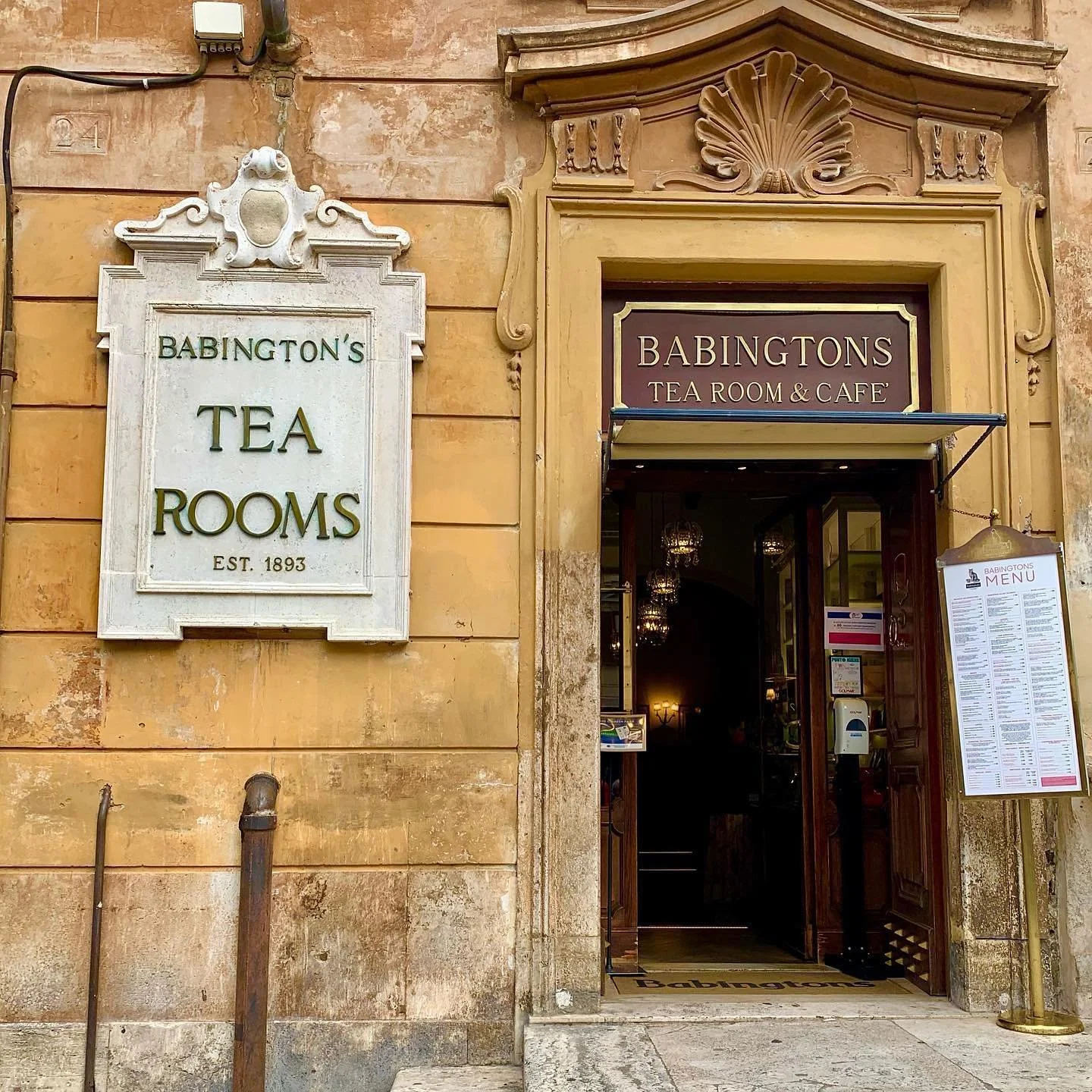
Babington’s Tea Room
s
One of my favorite bits of Rome’s history is this period when aristocratic vagabonds would go on these lengthy Grand Tours to “finish their education”. I’m not an aristocrat and not even that well educated to begin with but I often fantasize that I’m trying to do the same thing as them. But my journey here was so much easier, zipping through the clouds at 30,000 feet. They had to traverse the Alps. There were organized Alp teams that would be hired to assist these delicate aristocrats, strapping them in bundles of hides and lowering them and their luggage and their coaches with ropes. I came across a wonderful quotation that exemplifies how difficult it must have been; Lady Mary Wortley Montagu wrote in her diary “I am now, thank God, happily past the Alps” Such a perfectly worded sentence. Such clarity and exasperation!
In 1586 Anthony Babington tried to assassinate Queen Elizabeth I, his plan was unraveled and he and his co-conspirators were caught, jailed, hung, drawn and quartered. It was a significant event of the Elizabethan era and led to the death of Mary Queen of Scots. It’s called the Babington’s Plot.
300 years later, In 1893, Anna Maria Babington, descendant of that Antony Babington, while on one of those Grand Tours I was just talking about wondered why it was so difficult to get a decent pot of tea in the city of Rome, after all Keats, Byron and Shelly were all there too. She opened Babington’s Tea Rooms at the foot of the Spanish Steps.
*note the figurine of a cat perched on the top of the teapot in honor of the stray cat Mascherino who used to hang out at Babington’s during the day then spend his night stalking mice on the Spanish Steps.
“𝗜 𝗮𝗺 𝗻𝗼𝘄, 𝘁𝗵𝗮𝗻𝗸 𝗚𝗼𝗱, 𝗵𝗮𝗽𝗽𝗶𝗹𝘆 𝗽𝗮𝘀𝘁 𝘁𝗵𝗲 𝗔𝗹𝗽𝘀.”
-Lady Mary Wortley Montagu, 1739




